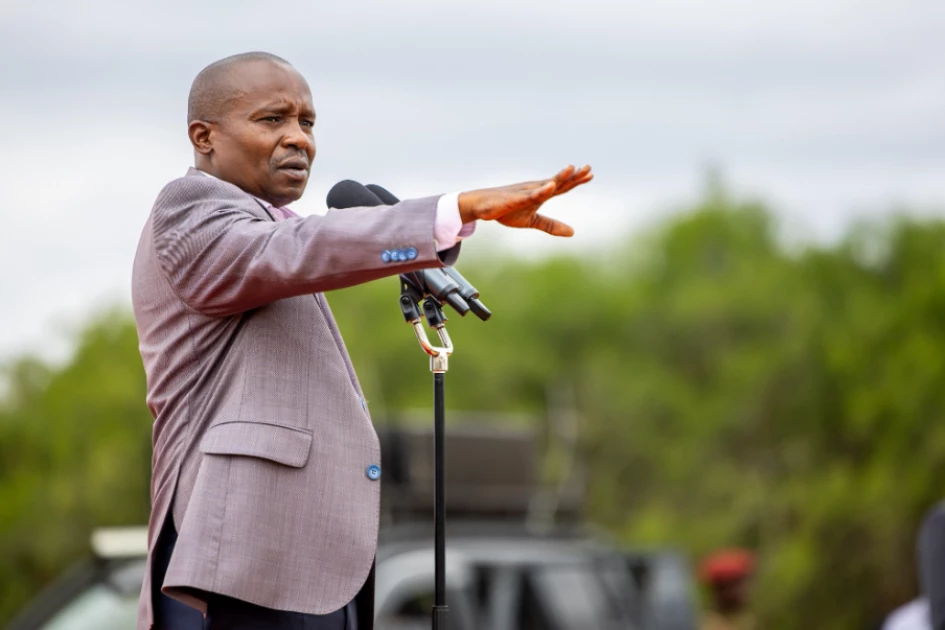Patronage politics: The fruits of Independence, the Mtumba way?

DP Kithure Kindiki speaks during an empowerment drive in Kitui on June 27, 2025. PHOTO | DPCS

Audio By Carbonatix
A visitor to Kenya might be forgiven for thinking that the Deputy President’s main job is to hold empowerment events. Recently, Deputy President Kithure Kindiki has been traveling across the country, attending forums meant to “empower” Kenyans.
Kindiki, a former law professor, seems to be struggling with this part of his role. Media reports suggest these empowerment events often fall short of making a real impact.
He is usually accompanied by other Kenya Kwanza leaders at rallies where youth, women, and persons with disabilities are invited to receive economic support. At these events, large amounts of money are displayed and then handed out to groups. On the surface, it looks generous.
But reports tell another story. One widow, leading a support group of 31 members, said they were given only 2,000 shillings—about 64 shillings each. Another person with a disability said his group of 18 received 20,000 shillings, which wasn’t even enough to cover transport to the event.
This raises serious questions. Who is doing the planning? Is there a proper system in place to ensure these events truly benefit people?
A scene from the Kenyan play Betrayal in the City captures the feeling well. In it, a character says that the youth “only have money in theory.” Many Kenyans today feel the same way—watching promises being made while little actually changes in their lives.
During the 2022 campaign, Kenya Kwanza promised a bottom-up economic model. Voters expected real reforms—systems that allow ordinary citizens to prosper through hard work and fair opportunities, not handouts.
What they’re seeing now looks more like trickle-down economics—the very model they hoped to move away from. Kenya Kwanza promised to break old habits, but these rallies feel like more of the same: a show of generosity, while long-term solutions are missing.
Even when public projects are funded properly, they often carry the faces of politicians—as if they are personal gifts, not services owed to the public.
Our leaders, especially the President and Deputy President, need to remember that Kenyans didn’t ask for charity. They asked for systems that work, and for leadership that empowers people with dignity and fairness—not with staged handouts at public events.
It’s time to leave behind this kind of politics and focus on real, accountable, and community-driven empowerment.
More than 50 years after Betrayal in the City was published, many Kenyans are still waiting for the full benefits of independence and the constitution. These benefits shouldn’t trickle down—they should reach all of us directly.


Leave a Comment